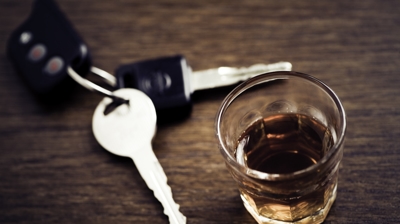
Excessive Point Suspensions in Colorado
You Need a Denver Traffic Offense Attorney
Colorado driver’s licenses are most commonly suspended due to excessive points. How can you accumulate these points? Our Denver traffic offense attorneys explain more about these details below. You can also call The Orr Law Firm at (303) 747-4247 to discuss the specific details of your case. We look forward to serving you.
Point Suspensions
Colorado operates on a driver’s license points system. As an adult driver (21 years of age and older) you are allowed 11 points in 1 year and 17 points in 2 years. Points are calculated under Colorado Revised Statutes 42-2-127, under a 24 month and 12 month theory. Probationary licenses are often available for suspensions and a hearing is required to obtain a probationary license. However, probationary licenses are completely discretionary and up to the individual hearing officer who presides over your hearing. Do not expect that you will automatically be given a probationary license without having to serve some sort of suspension period on the front end.
How Do Point Suspensions Happen?
If you get too many points against your driving record within a certain period of time, you will lose your driver's license through an accumulation of excessive points. Each time you are convicted of a traffic violation the court electronically notifies the Division of Motor Vehicles (DMV) of the conviction.
A conviction occurs when you plead guilty to a charge, pay the ticket by mail or online, a default judgment is entered or reported or you accept a plea bargain. Also, certain tickets will become convictions by default if you fail to appear in court. Each type of conviction causes a certain number of points to be placed on your traffic record. A list of how many points go with certain tickets may be found below. Each time you get a ticket; the Division of Motor Vehicles places the points on your record and then analyzes your record to see if there are enough points to cause a point suspension.
When the DMV analyzes records, it determines whether there are enough points to cause a suspension in the proper age group. You do not "get points back" when you have a birthday. Also, points are assessed based on the date of offense, not the date of conviction. So when the DMV analyzes your record, they look to see if you have exceeded points based on when you committed the offenses. Dragging your case out in court does not prevent a suspension for excessive points.
Minimum Points to Cause a Suspension
Age Group:
- 12 month
- 24 month
Period of License:
- Minor Driver (16-17)
- 6 points
- 7 points
- Minor Driver (18-20)
- 9 points
- 12 points
- 14 points
- Adult Driver
- 12 points
- 18 points
- Chauffeur
- 16 points
- 24 points
- 28 points within any 48 month period
Colorado law provides for different point brackets if you are a chauffeur. By statute, a chauffeur is an individual who is employed as a driver, such as a taxi cab driver. You may be entitled to chauffeur points if you can prove each ticket occurred in the course of your employment. If you wish to be considered for chauffeur points, you should be prepared to bring documentation to the hearing, such as work records and copies of your tickets. If there are enough points on your record to cause a suspension, a suspension is required.
The DMV does not suspend your license without first setting a hearing. The DMV is supposed to send a notice to the last address you gave on your driver's license. That notice will tell you when and where the hearing will be. If you move and do not notify the DMV of your correct mailing address, you may not receive the notice. Just filling out an address change at the post office will not work. If you fail to appear at your scheduled hearing, the suspension will go into effect for a period of one year.
Traffic Violation Points §42-2-127
- Accident – Leaving Scene: 12 points
- Careless Driving: 4 points
- Careless Driving – Resulting in Death: 12 points
- Cell Phone: 1 point
- Divided or Controlled-Access Highway - Driving on Wrong Side: 4 points
- DUI: 12 points
- DUI per se: 12 points
- DUI – Habitual User: 12 points
- DWAI: 8 points
- Eluding Police Officer: 12 points
- Emergency Vehicle – Failure to Yield: 4 points
- Failure to Exercise Due Care for Pedestrian: 4 points
- Failure to Signal: 2 points
- Following too Closely: 4 points
- Head Lamps – Defective: 1 point
- HOV Lanes: 0 points
- Improper Backing: 2 points
- Improper Passing: 4 points
- Improper Signal: 2 points
- Improper Turn: 3 points
- Insurance – Failure to Maintain or Show Proof Of: 4 points
- License – Driving Without (2nd or Subsequent Offense): 6 points
- Lights – Failure to Dim or Turn On: 2 points
- Minor Driver – Driving Between Midnight and 5:00 a.m.: 2 points
- Minor Driver – Passenger Under 21: 2 points
- One-Way-Street – Driving Wrong Way: 3 points
- Reckless Driving: 8 points
- Right-of-Way – Failure to Yield: 3 points
- Right-of-Way – Failure to Yield to Pedestrian: 4 points
- Right-of-Way – Failure to Yield to Pedestrian with Disability: 6 points
- Safety Zone – Driving Through: 3 points
- School Bus – Failure to Stop For: 6 points
- School Signal – Failure to Stop: 6 points
- Seat Belt – Driver: 2 points
- Seat Belt – More Passengers than Seat Belts: 2 points
- Seat Belt – Passenger: 2 points
- Special Hazard – Failure to Reduce Speed: 3 points
- Speed Contest – Engaging In or Aiding/Facilitating: 12 points
- Speed Exhibition – Engaging In or Aiding/Facilitating: 5 points
- Speeding - 1-4 mph Over Reasonable Prudent Speed or 75 mph Speed Limit: 0 points
- Speeding – 5-9 mph Over Reasonable Prudent Speed or 75 mph Speed Limit: 1 point
- Speeding – 10-19 mph Over Reasonable Prudent Speed or 75 mph Speed Limit: 4 points
- Speeding – 20-39 mph Over Reasonable Prudent Speed or 75 mph Speed Limit: 6 points
- Speeding – 40 mph Over Reasonable Prudent Speed or 75 mph Speed Limit: 12 points
- Suspension System – Alteration Of: 3 points
- Traffic Sign or Signal – Failure to Observe: 4 points
- Underage Drinking and Driving: 4 points
- Unsafe Vehicle: 2 points
- Wrong Lane: 3 points
- Wrong Side of Road – Driving On: 4 points
What Happens at the Hearing?
The hearing is like a small court; you will appear at the hearing to tell your side of the story and the hearing officer will ask you questions and make some decisions. You may have a Denver traffic offense attorney with you at this hearing. Your attorney may not represent you at this hearing alone. You must be present. The hearing officer will want to obtain information that only you can provide. The hearing officer will tape record the hearing. If you do not think the hearing officer followed the law, you may appeal their decision to the District Court in the county where you live.
If you choose to appeal the decision, you must file that appeal within 30 days of the date of the hearing. You should not appeal simply because you do not like the hearing officer’s decision. The appellate court cannot reverse the ruling simply because they feel the period of suspension or terms and conditions of the PDL are too strict or punitive. You have to prove that the hearing officer failed to follow the law, exceeded their statutory authority or acted in an arbitrary and capricious manner.
At the hearing, the hearing officer decides the following:
- Whether a suspension is required by law for excessive point accumulation?
- What aggravating and mitigating factors exist?
- How long of a period of suspension should be imposed based on all evidence heard and presented and the existence of aggravating and mitigating factors?
- Whether any type of driving privileges will be granted during the period of suspension.
Basically, the hearing officer determines whether or not they want to give you a probationary license while you are suspended and how long that period of suspension will be.
What If My Motor Vehicle Record Is Wrong?
It is up to you to show documentation that proves the record is wrong. The courts send official record of the convictions to the DMV. Then, the convictions are placed on your motor vehicle record. Certified court transcripts are required to remove those convictions from the record. A certified court transcript is a sealed document from the court itself. If you think something is incorrect on your MVR, you need to contact the court to get a copy of your court file and ask the court clerk to send an amended transcript to the DMV so the record can be corrected.
How to Get a Probationary (Red) License in Colorado
A probationary license, or better known as a “red license,” is always up to the discretion of the hearing officer. They will take several things into consideration when determining whether or not to grant you a restricted license. A probationary driver's license is a license to drive, for limited purposes, usually driving to and from the place of employment or to perform duties in the course of employment, during the term of a license suspension.
Probationary driver's licenses (PDL) are for need-based driving only and the hearing officer presiding over the hearing will determine what is and is not a need, if they choose to grant you a probationary license at all.
A driving privilege for commercial vehicles is not granted, and PDL hearings are no longer available for alcohol offenses or per se violations. As a result, PDL hearings are usually only granted due to point suspensions or child support suspensions. If you have a probationary license and are stopped by a law enforcement officer, and you are outside of your restrictions, the officer will confiscate the license for violating the terms of the license.
Under Colorado state law, a provisional license can also be taken away from someone if they get any traffic tickets while driving on the probationary license. Once the license is confiscated, or you receive a ticket, the probationary driver's license will be cancelled and you will not be able to drive for the duration of your suspension. Also, any additional points may result in an additional suspension for excessive points.
How Do I Get My License Back After the Suspension?
You get your license back through a process called reinstatement. Either at the hearing or through the mail you will be told the date in which you can get full reinstatement. On or after that date you may be reinstated. Driving after your reinstatement date without first getting reinstated is against the law and call driving under suspension.
- Learn more about the reinstatement process here.
What Happens If I Drive While Under Suspension?
Going without a license is a hardship that can seem impossible to endure. However, the penalty for driving under suspension is far worse. If you get caught driving while your license is suspended, there will be both criminal and administrative penalties. The criminal courts can convict you of driving under suspension. That penalty carries a minimum mandatory jail sentence of 5 days along with a fine.
The penalties increase if you have prior offenses and convictions for driving under suspension or restraint. If you are convicted of any traffic offense while your license is under suspension, the DMV will automatically extend you period of suspension for 1 additional year with no possibility of obtaining a probationary or red license pursuant to C.R.S. 42-2-138(3).

What Sets Us Apart From The Rest?
Orr Law Firm is here to help you get the results you need with a team you can trust.
-
Offer Free Consultations and Payment Plans
-
Proven Record of Dismissals, Reductions, and Acquittals
-
Highly-Qualified Defenders Who Know How to Fight for Results
-
Award-Winning Advocacy from Top Trial Lawyers in the Nation



